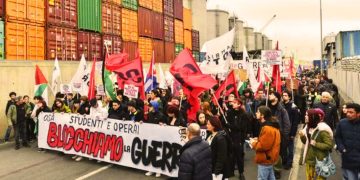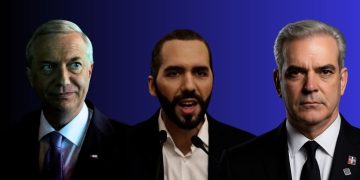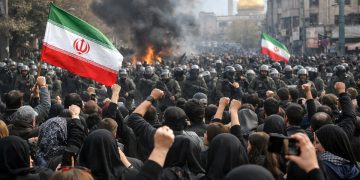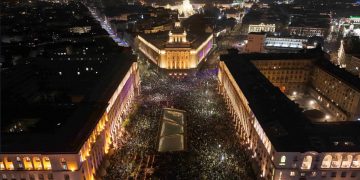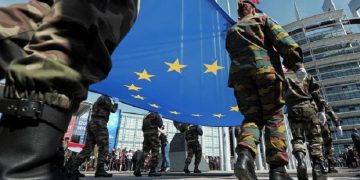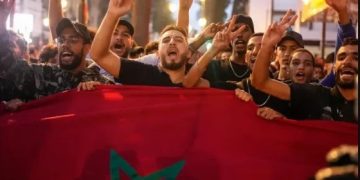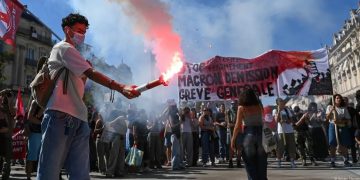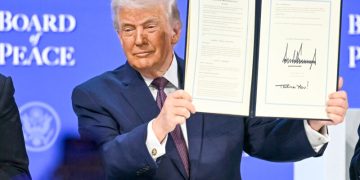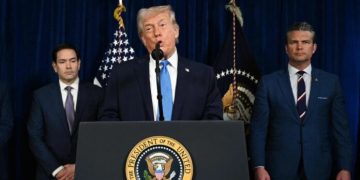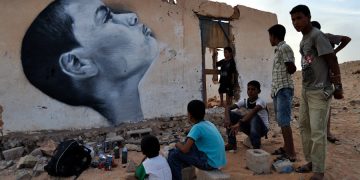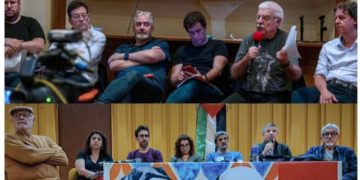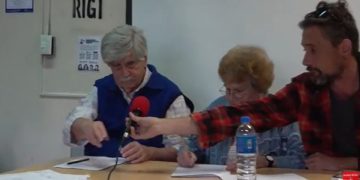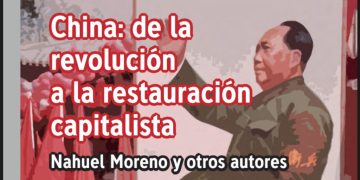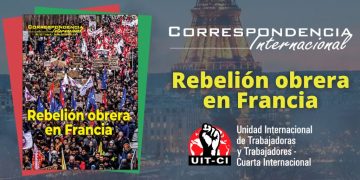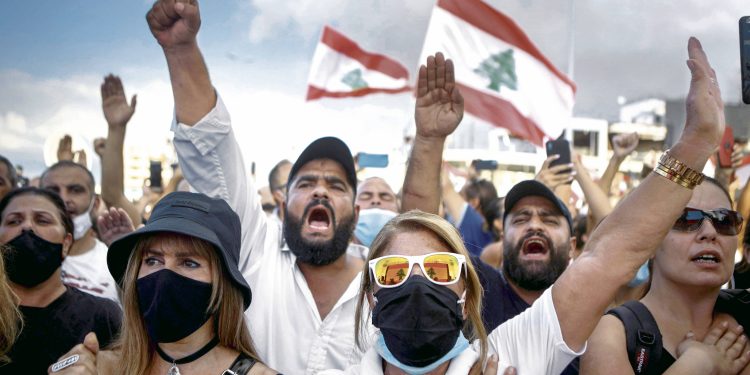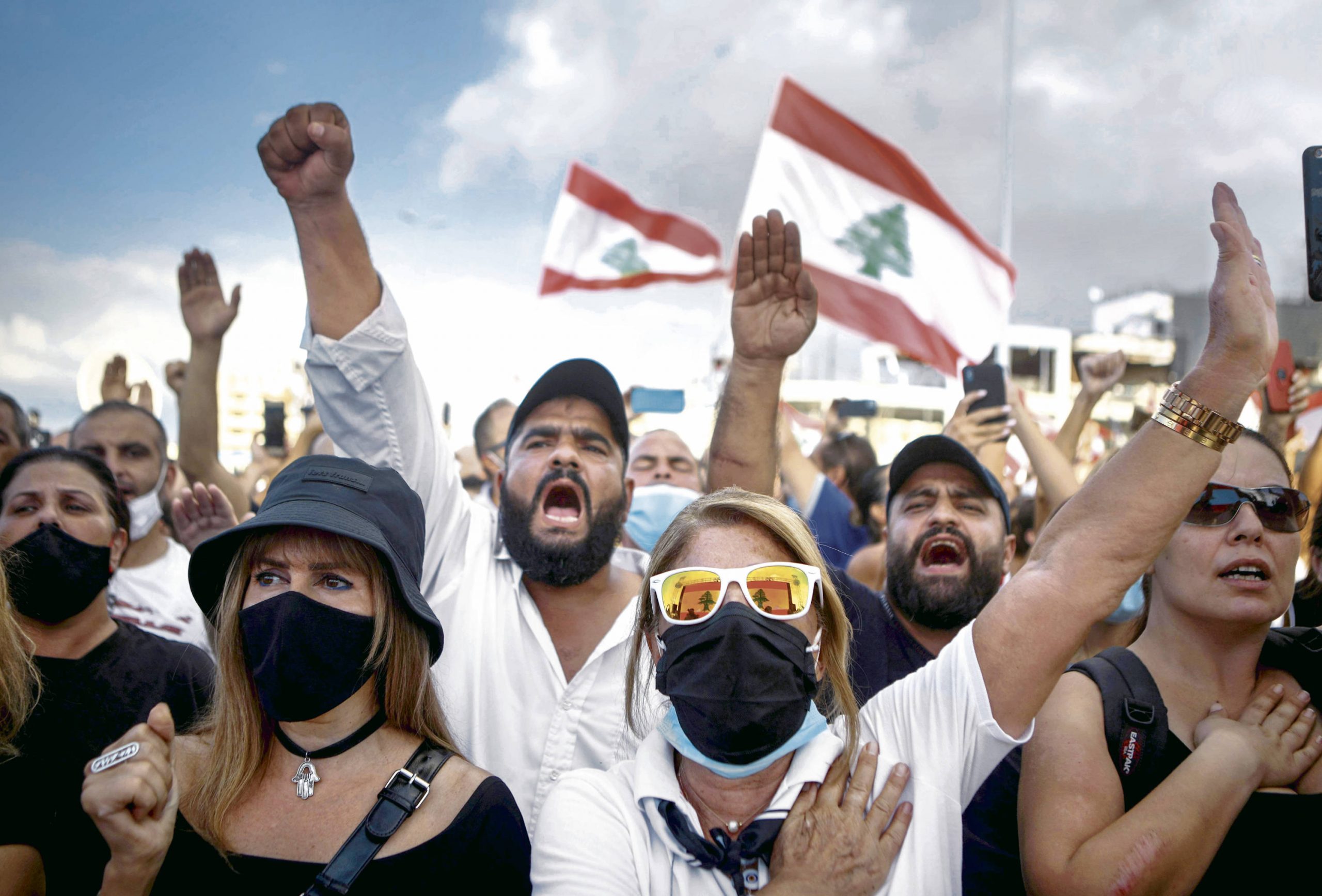 By Miguel Lamas
By Miguel Lamas
The people on the street shout, “All of them must go!”
Lebanese Prime Minister Hassan Diab announced the resignation of his government on Monday, six days after the explosion that destroyed part of Beirut, the capital, following the resignation of almost all his ministers and with hundreds of thousands of people in the streets outraged, occupying public buildings, and shouting “revolution” and “get out”.
Lebanon, a small country of 7 million inhabitants, mostly Arab, divided into Christian and Shiite and Sunni religious options, is in a deep economic, social and political crisis. It occupies economically the role of the financial centre of the Arab Middle East, depending mainly on French imperialism. A neighbour of Israel, the Israeli Armed Forces repeatedly invaded it.
In April, the protest mobilisations that had begun in October last year and the pandemic interrupted, resumed. Besides slogans against the ruling class motivated by economic crises, allegations of corruption, and religious sectarianism, there are now demands for a thorough and impartial investigation of the catastrophic explosion. The protesters are becoming more radical. With cries of “revolution” and “you all must leave,” they run members of the government through the streets and take over ministries. The government tried to appease them by calling for elections in two months. But the mobilisations are increasing every day.
Meanwhile, the now-resigned president, Michel Aoun, said shortly after the explosion it was “unacceptable” that 2,750 tons of ammonium nitrate were being stored unsafely. But then he said by a tweet that “an international investigation will be a waste of time”.
What caused the recent disaster was a fire in a warehouse where 2,750 tonnes of ammonium nitrate had been stored for six years without “precautionary measures”, Prime Minister Hassan Diab acknowledged. At least 160 people died and 6,000 were injured, 300,000 were left homeless, and tons of biosafety material was in the port to be used in the face of the pandemic was destroyed. Hospitals already collapsed from the pandemic were filled with people injured in the explosion.
“The WhatsApp Revolution”
This disaster, whose causes have not yet been clarified, deepened the crisis even more and radicalised the demonstrators who took to the streets in October last year, opening up a revolutionary process that already led to the fall of the previous government of Saad Hariri, of the business right supported by imperialism, in November.
The political crisis has been dragging on for decades, and in October it was exacerbated by a total economic catastrophe, with half of its population below the poverty line and a debt of 170 per cent of its GDP (proportionally one of the highest in the world) and the collapse of all public health services, the Internet, etc. In early October 2019, the shortage of foreign currency led the Lebanese pound to a sharp depreciation against the dollar, triggering hyperinflation. Importers of wheat and fuel demanded to be paid in dollars, unions called strikes.
In mid-October, the government, applying classic IMF plans, proposed new taxes on tobacco, gasoline and voice calls through WhatsApp to increase its revenues, but the violent reaction of the population by taking over public buildings forced the cancellation of the plans and the fall of the government in November. It was called the “WhatsApp revolution”.
The government of Hassan Diab
With the collapse of Hariri in November, the government led by Hassan Diab was formed as a centre-left government, composed of Hezbollah (the “party of God”) and the Amal Movement, parties supported mainly by the Shiite Muslim population; the Marada Movement, Christian; the Communist Party of Lebanon, the Syrian Nationalist Social Party and the Free Patriotic Movement, supported mainly by the Christian population.
However, this government did not achieve political stability, nor did it stop the protests, since it did not take any economic measures to ease the disaster that the people are experiencing. It maintained the payments of the foreign debt and the very high profits of the bankers (Lebanon is the financial centre of the Arab Middle East).
Unstoppable uprising
French President Emmanuel Macron visited Beirut the day after the explosion, as a fireman to put out the fire. With a false “humanitarian” speech to “help”, he said. He went to defend economic interests in the country, which was a protectorate of France from 1920 to 1943, and for that, he tried to prop up the Diab government. The French bourgeoisie has maintained important businesses in Lebanon.
Faced with the depth of the crisis and the collapse of all parties, business sectors circulated a petition for France to take control of the country for 10 years.
In the streets, hundreds of thousands of young people, workers, unemployed, impoverished women, are joining, erasing the sectarian-religious dividing lines and repudiating all the employers’ parties of any religious confession. The Lebanese working people need to organise their own power to end the disaster, starting by imposing the non-payment of the foreign debt.
We call for international solidarity of the workers and youth with the struggle of the Lebanese people, and against any French or Zionist imperialist intervention with the excuse of “stabilising”, because it will only lead to increasing the disaster.








